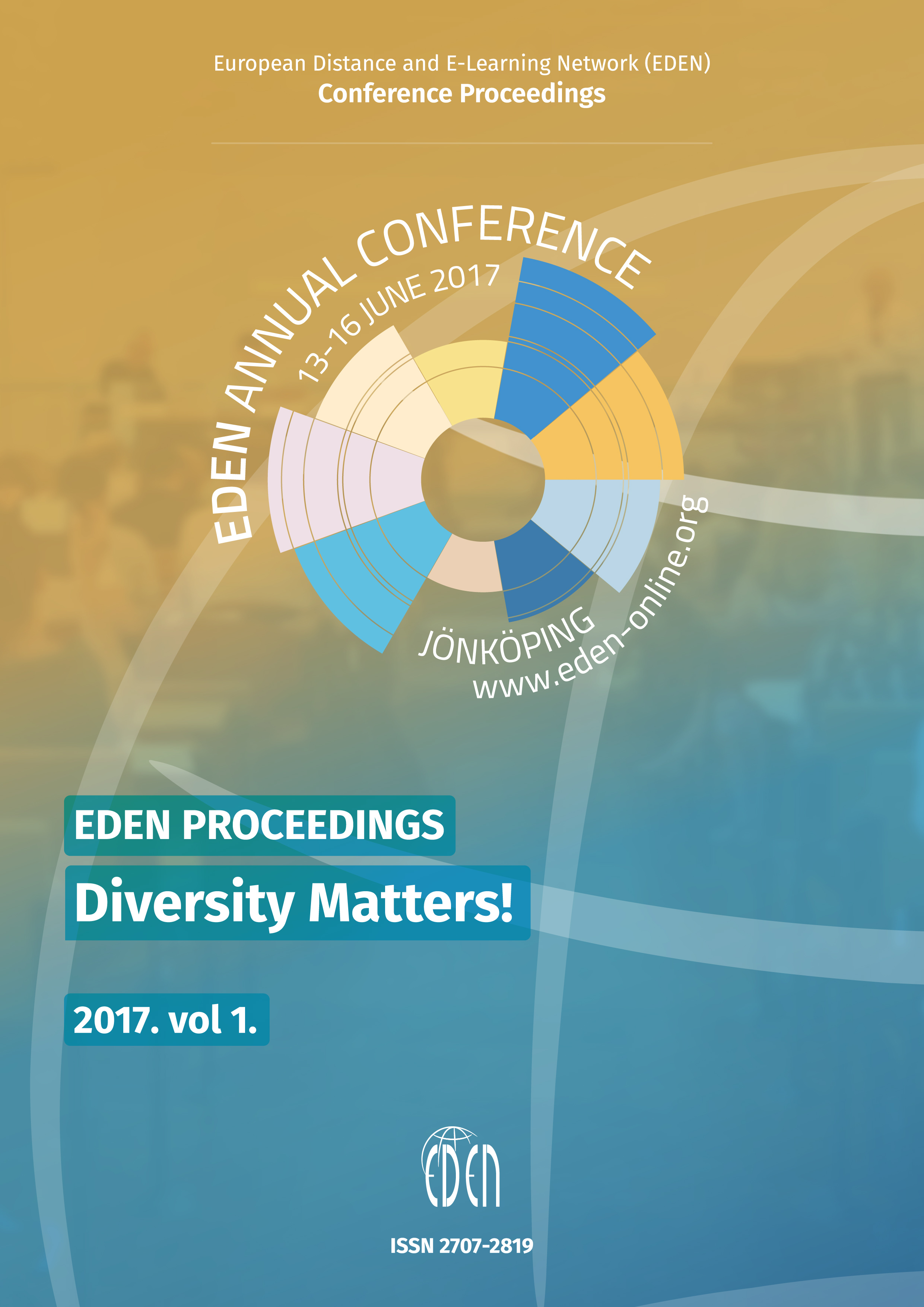Collaborative Online Learning at a Distance - a Case Study and Developing the Knowledge Base
Collaborative Online Learning at a Distance - a Case Study and Developing the Knowledge Base
Author(s): Gerald Evans, Daphne ChangSubject(s): Social Sciences, Education, Higher Education
Published by: European Distance and E-Learning Network
Keywords: Assessment and evaluation; Collaborative learning; Distance and e-learning methodology; Distance and e-learning theory; E-skills; e-competences; Learner needs and motivations;
Summary/Abstract: The pedagogical benefits of collaborative activity have been well recognised. It helps students to develop critical thinking skills, reflective abilities, team working skills and enable transformative learning by co-creation of knowledge (Pallof & Pratt, 1999). For subjects that require students to “... examine, assess and synthesise multiple perspective to resolve ill-structure problem” (Posey & Pintz, 2006), collaborative activity is seen as an integral part of teaching. Over the years, educators at The Open University (OU) have developed sophisticated online virtual laboratories, gamification and animation opportunities and a suite of tools to choose from to deliver and support collaborative online activities. However, academic teams at the OU continue to face many challenges in designing, delivering and supporting successful online collaborative activities.In seeking to better support academic teams with delivery and support for online collaborative activities, the TEL Design team at The Open University produced a guide to good practice on collaborative online activities last year. This guide explains the purposes of online collaborative activities and makes explicit why they are beneficial. It outlines that we can deliver effective collaborative online activities by understanding the impact of online collaboration, making activities meaningful, paying attention to/catering for diversity and careful design and using appropriate tools for collaboration. It also provides exemplars on guidance for students, tutor support and assessing students’ online collaboration (Open University, 2016). This paper looks at a specific case study of how the good practices outlined in this guide can be used to achieve enhanced collaborative experience for learners with different social-cultural backgrounds and personal circumstances.
Journal: European Distance and E-Learning Network (EDEN) Conference Proceedings
- Issue Year: 2017
- Issue No: 1
- Page Range: 89-92
- Page Count: 4
- Language: English

